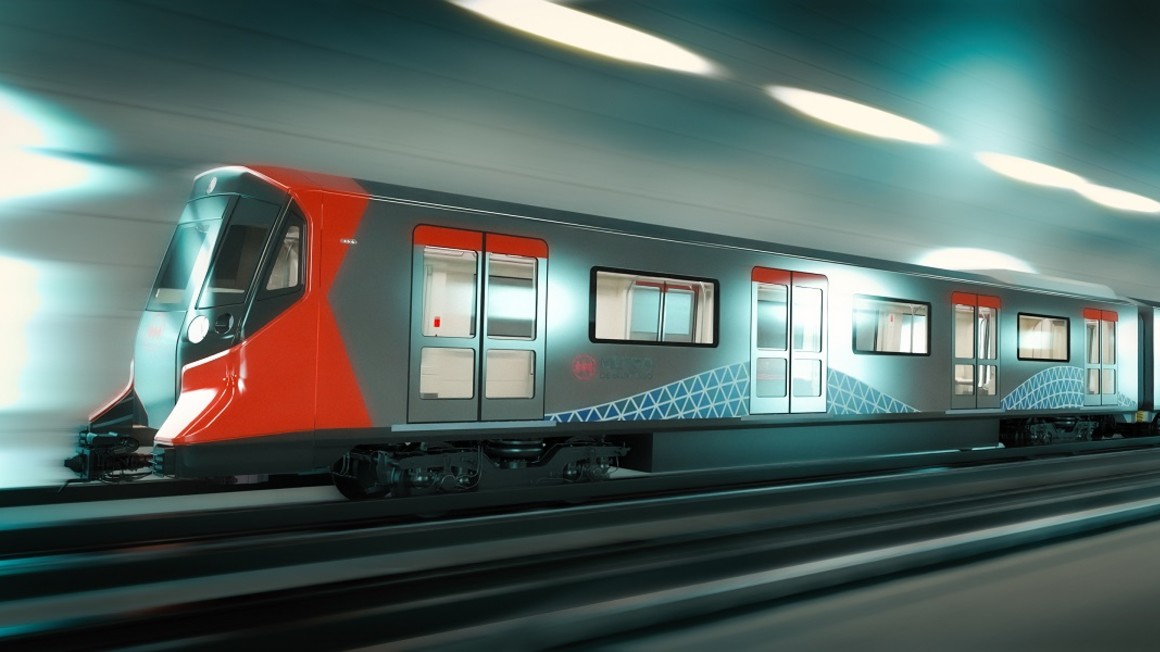
Alstom signs contract for signalling system, 37 Metropolis trains and 20 years of maintenance in Chile
Alstom signs contract for signalling system, 37 Metropolis trains and 20 years of maintenance in Chile

Press contact - Samuel Miller
Samuel Miller
Send an emailPress contact - Latin America
Ana Caiasso
Send an email-
Advanced Metropolis trains and signalling system to optimise capacity on Santiago Metro’s planned Line 7
-
Contract worth around €355 million
7 March 2022 - Alstom, global leader in smart and sustainable mobility, has won a €355 million contract to provide its Urbalis CBTC signalling system, along with 20 years of maintenance and 37 Metropolis trains to Santiago, Chile. The new trains, combined with the CBTC signalling system, will help optimise the capacity, throughput, and efficiency of Metro de Santiago’s new Line 7, whose inauguration is planned for the end of 2027.
"This contract is validation of Alstom’s smart and sustainable mobility innovations and advanced technology. Our trains and signalling system will improve not only the quality of mobility and transportation in Chile, by ensuring reliable, safe, and available transportation, but it will also provide the city of Santiago with an efficient environmentally-friendly alternative to road transport for millions of passengers," says Denis Girault, Managing Director of Alstom in Chile.
With flexibility that offers a variety of configurations, Alstom’s Metropolis range of metro trains has been in operation worldwide for over 20 years. Each of the 37 102-metre automatic Metropolis trains that Alstom will deliver to Santiago Metro will have a capacity to transport up to 1,250 passengers and deliver an improved passenger experience. The metros will feature 4 wide doors on either side to facilitate passenger ingress and egress, as well as wide aisles and open gangways between cars to ensure passenger fluidity inside and in between cars. Santiago’s Metropolis trains will also feature air-conditioning and an advanced passenger information system that displays route and station information, while security features such as high-resolution external cameras and intercoms that maintain passenger communication with the control centre will enhance passenger and infrastructure safety. Alstom will manufacture the new trains at its Taubaté plant in Brazil, with the first cars expected to be delivered in 2025.
"Our trains and signalling system will improve not only the quality of mobility and transportation in Chile, by ensuring reliable, safe, and available transportation, but it will also provide the city of Santiago with an efficient environmentally-friendly alternative to road transport for millions of passengers."
Alstom will deliver its Urbalis CBTC signalling system across 26 kilometres of the line. Urbalis reduces the headway between trains, thus maximising the system’s capacity, and helps improve energy efficiency of operations. Alstom will also integrate advanced rail cybersecurity measures to improve the protection of Line 7’s train control systems for both trains and signalling.
Currently under construction, Metro de Santiago’s Line 7 will be 26 kilometres long and have 19 stations. It will cross through seven communes: Renca, Cerro Navia, Quinta Normal, Santiago, Providencia, Vitacura and Las Condes; three of which are incorporated for the first time within the Metro network (Renca, Cerro Navia and Vitacura), benefiting an estimated population of 1 million 365 thousand inhabitants. When Line 7 is operational, the expected travel time between the future terminal stations is estimated to be 37 minutes, which means a 54% reduction in travel time compared to what it takes today through the bus system (approximately 80 minutes). The investment amount for Line 7 amounts to US$ 2,528 million.
With over 30 years’ expertise in CBTC and over 160 metro lines equipped in over 25 countries, Alstom is known as a strong leader in the mass transit market.
-
37Metropolis trains to Santiago in Chile
-
€355 Mis the approximate contract value
-
54%reduction in travel time
About Metropolis metros
With flexible configurations, Alstom’s Metropolis metro trains are serving the different needs of customers worldwide for over 20 years: From small to large gauge profiles, 2-to-9-car configurations, different voltage systems, steel or tyre wheels, fully automated or manually operated and individual interior designs, the trains can be adapted to existing infrastructure and multiple capacity needs. Metropolis metros feature low noise levels, high recyclability, and optimised energy-efficiency to minimise environmental impact. Over 30 cities have ordered or are operating Metropolis trains, including Amsterdam, Singapore, Panama City, Barcelona, Paris, Riyadh, Dubai, Sydney and Montreal.
About Alstom in Chile
With more than 420 employees and 7 sites, Alstom has been present in Chile for 75 years, delivering metro trains, regional trains, signalling systems and infrastructure, modernization, and maintenance services, to Metro de Santiago, Metro Valparaíso and Empresa de los Ferrocarriles del Estado (EFE). To date, Alstom has delivered the NS74, NS93, AS02, NS04 and NS16 fleets to Metro de Santiago.
Alstom™, Metropolis™ and Urbalis™ are protected trademarks of the Alstom Group.